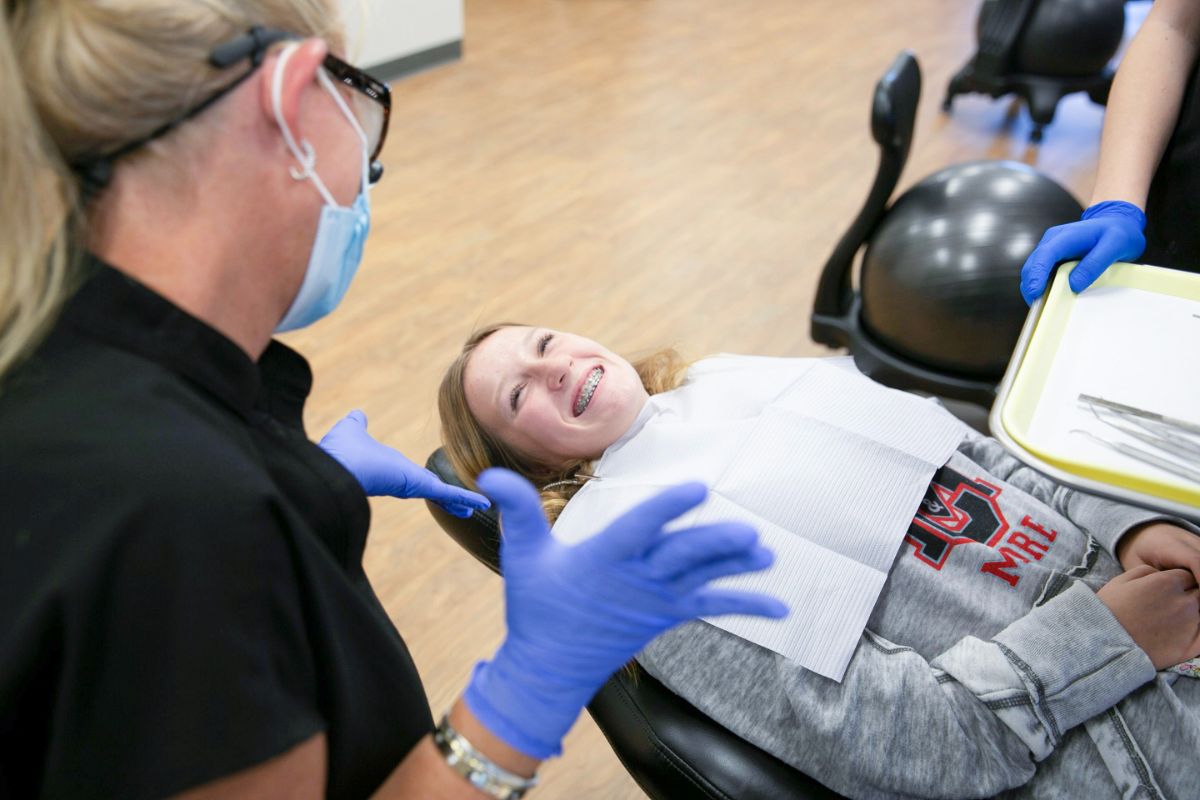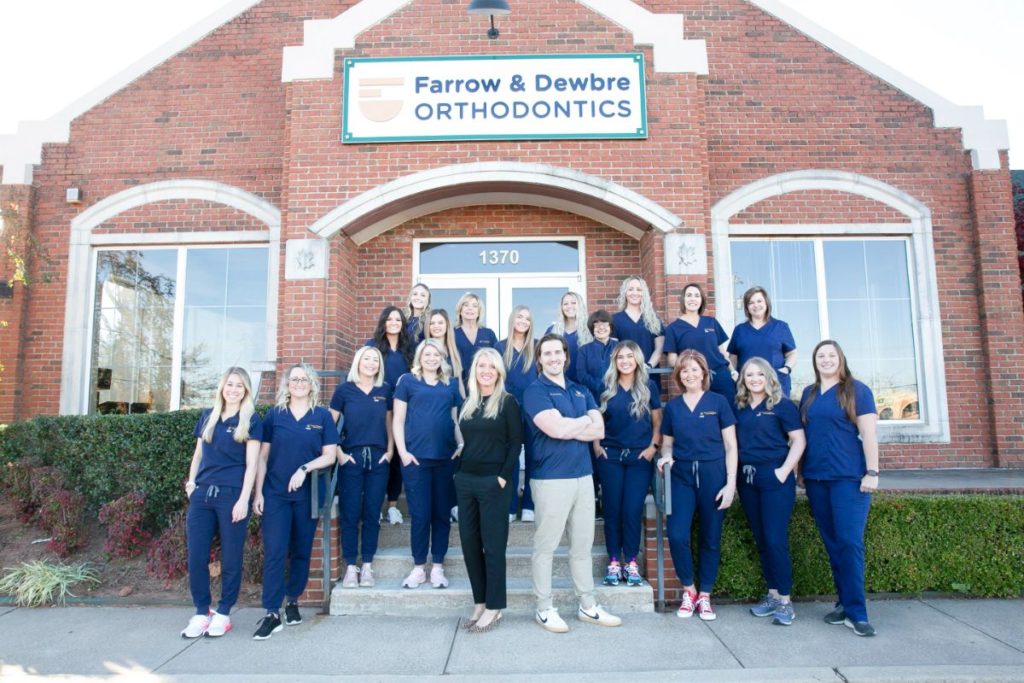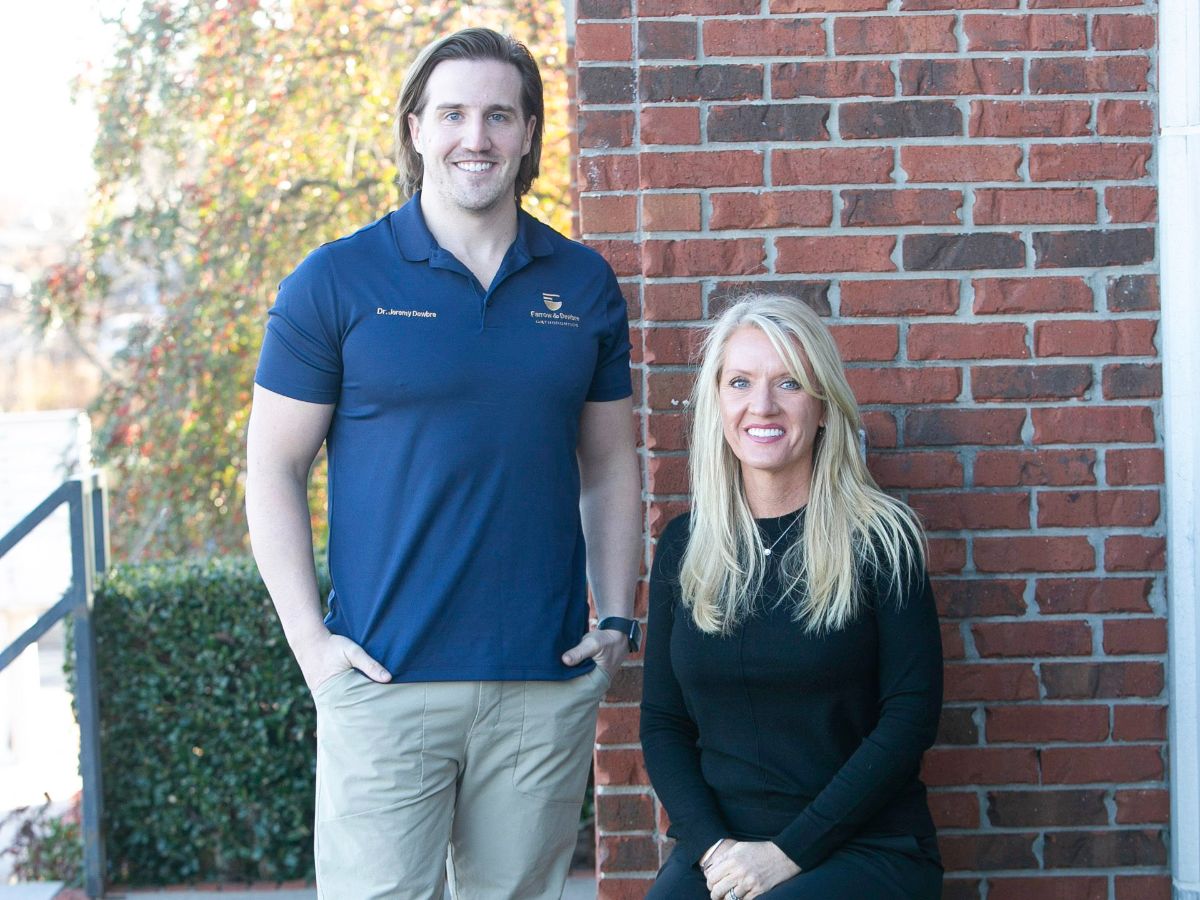A successful orthodontic treatment experience isn’t just about receiving professional and gentle care. You also need to trust that your doctor and your orthodontic team have your best interests in mind and at heart.
Here at Farrow & Dewbre, we prioritize patient education because you should always know what’s going on with your treatment. So, we know you deserve an experienced orthodontist that helps you feel empowered from your first appointment to your most recent.
But what else should you be asking? To help you begin your orthodontic journey, we’ve put together this list of questions to ask before committing to an orthodontic practice for treatment.
Is the doctor a trained orthodontic specialist?
You would think this is a no-brainer for your decision-making, but you might also be surprised to find out that just because your dentist offers orthodontic treatment that doesn’t mean they are specially trained in orthodontics. Many general dentists also provide braces treatment and clear aligner therapy in addition to standard dental services such as cleanings, fillings, crowns, and dentures. While an orthodontist, on the other hand, specializes only in providing orthodontic services.
After a dentist has completed their undergraduate medical education, they must attend a graduate school specifically for dentistry and pass a certification exam before beginning their general dentistry work. The same goes for orthodontists, except they must attend an extremely competitive orthodontic residency program after their general dentistry certification. These programs typically last another 2 to 3 years and include full-time training meaning the orthodontist has:
- Studied the growth and maturation of teeth and jaw
- Been introduced to numerous case studies
- Developed diagnostic skills
- Learned biomechanical techniques to properly move teeth
- Studied how to change the development of the dental alveolar complex and facial growth of younger patients
While there are some exceptions, most dentists simply will not possess this level of in-depth orthodontic training and experience. If you are looking for foundational oral health maintenance, trust your dentist. But, if you need specialized orthodontic care, you can trust that Dr. Farrow and Dr. Dewbre are both board-certified orthodontists and have proven themselves by achieving the highest level of intensive experience. At Farrow & Dewbre Orthodontics, the relationship between the patient and doctor is truly a partnership in striving for a common goal: to achieve and maintain a beautiful, healthy smile that will last a lifetime!

What treatment options does the orthodontist offer?
Most patients we treat choose traditional metal braces to straighten their teeth, and while this is the most common option, you have several other options available to reach your smile goals quickly and effectively. By pairing state-of-the-art technology with our thorough understanding of the movement during facial growth, Farrow & Dewbre Orthodontics can successfully treat many dental issues based on your unique needs and goals using metal braces, clear braces, Invisalign, lingual braces, jaw surgery, facial growth treatment, and accelerated orthodontics, like mini implants and diode laser.
Metal Braces
Traditional metal braces are the most widely used type of fixed orthodontic appliance. Though past incarnations have been bulky, awkward, and painful, today’s metal braces are smaller, lighter, and more comfortable. We are pleased to offer our patients passive self-ligating Damon Smile braces. This option uses a slide mechanism to hold the archwire, reducing the amount of pressure exerted on the teeth and allowing teeth to move more freely, quickly, and comfortably.
Clear Braces
Ceramic braces use the same components as traditional metal braces, but instead of metal, the brackets on the front side of the teeth are made of a clear or tooth-colored ceramic material. This makes clear braces a common choice for teenagers and older patients who do not like the aesthetic of the metal look. Clear braces require more care as the ceramic pieces can break and are prone to staining depending on your eating and cleaning habits.
Invisalign
Unlike traditional braces, Invisalign treatment doesn’t rely on a system of metal or ceramic brackets and wires. Instead, it comprises a series of invisible, removable acrylic trays that straighten your teeth by applying steady pressure on your teeth as you wear them. They are replaced every 1 to 2 weeks to make this adjustment gradually. Though you can remove them to eat and brush your teeth, you will need to wear them about 22 hours a day for them to be effective.
Social 6
Social 6 is a limited orthodontic treatment option at Farrow & Dewbre Orthodontics. It’s perfect for adults looking to make minor adjustments, like correcting movement after losing your retainer or adjusting your front six teeth, also known as your “social 6” (because those are the ones everyone can see).
Corrective Jaw Surgery
Corrective jaw surgery, or orthognathic surgery, treats abnormalities associated with facial bones, specifically your jaws and teeth. These abnormalities can interfere with your ability to talk, sleep, and enjoy your current lifestyle and even cause sleep apnea, snoring, and TMJ pain. When paired with orthodontic treatment, jaw surgery can correct these concerns and improve the overall appearance of your facial profile. Our doctors work with an oral and maxillofacial surgeon as a team to ensure that if you need surgical orthodontics, you will receive the best care possible.
Facial Growth Treatment
While most people have heard of orthodontics, many are stumped by our dentofacial orthopedics specialty. “Orthodontics and dentofacial orthopedics” is one of nine specialties sanctioned by the American Dental Association and involves the guidance of facial growth and development, which occurs mainly during childhood.
Dr. Farrow and Dr. Dewbre frequently use headgear and expanders in combination with orthodontic appliances like braces to correct facial abnormalities. They are skilled in both specialties, so they can accurately diagnose any misalignments in your teeth and jaw, as well as your whole facial structure.
TMJ/TMD Treatment
While TMJ disorders are often attributed to an injury or arthritis, other times, they result from an imbalance in the forces of the nerves, ligaments, and muscles. Once we’ve pinpointed the cause, we take a conservative multidisciplinary approach and aim to use less invasive treatments like oral appliances, physical therapy, trigger point injections, or injections with botulinum toxin.
How frequent are follow-up appointments with the orthodontist?
While your exact follow-up timing will vary depending on the orthodontic treatment plan you and our expert team determine is right for you, we will schedule most patients’ adjustment appointments for about every four to eight weeks. Patients using Invisalign may be seen slightly less frequently, but regardless, these appointments are crucial for your overall orthodontic process!
The average process will take anywhere from 8 to 36 months to achieve your perfect smile, but visible results are evident as early as the first few months with most treatment plans. We know you’re busy, and we value your time, just give us a heads up if you’re running late or need to reschedule, but don’t forget that your participation in the follow-up care is just as important.

Trust your smile to the experts at Farrow & Dewbre Orthodontics
Farrow & Dewbre Orthodontics is the location for modern orthodontic treatment. Our offices are conveniently located to serve the greater Western Oklahoma area better. With offices in Edmond, Oklahoma City, Clinton, and Deer Creek, this means excellent orthodontic care is only a few minutes from your home, school, or work.
There’s never been a better time to reach for the smile you’ve always wanted, so get in touch today to schedule your FREE consultation with our expert orthodontic team!
